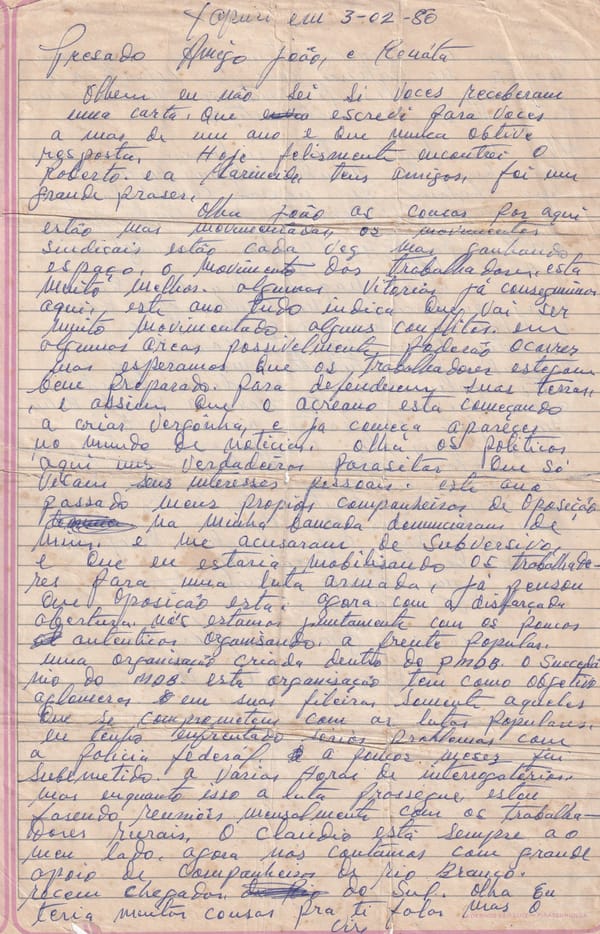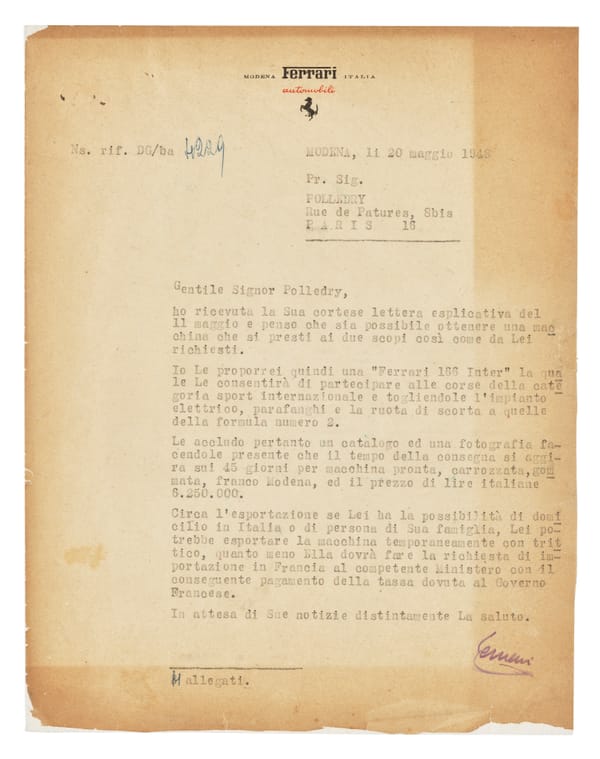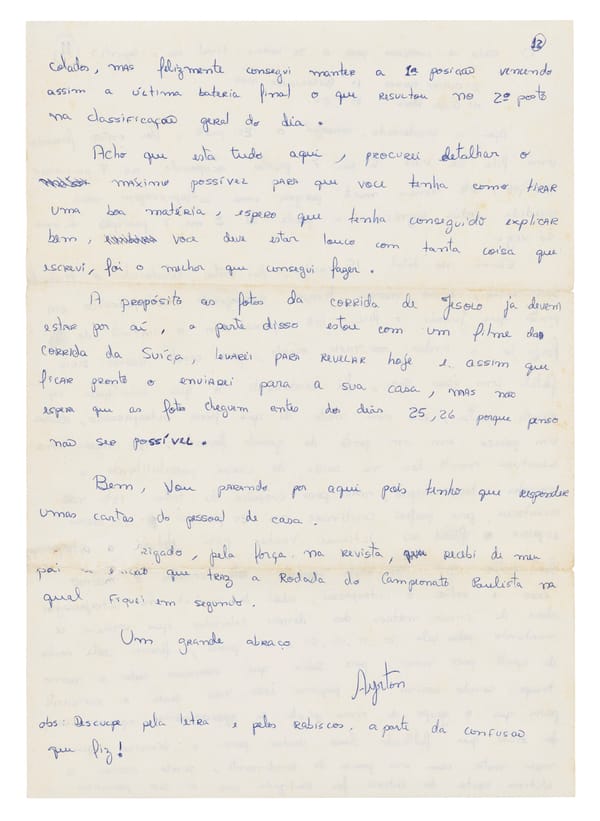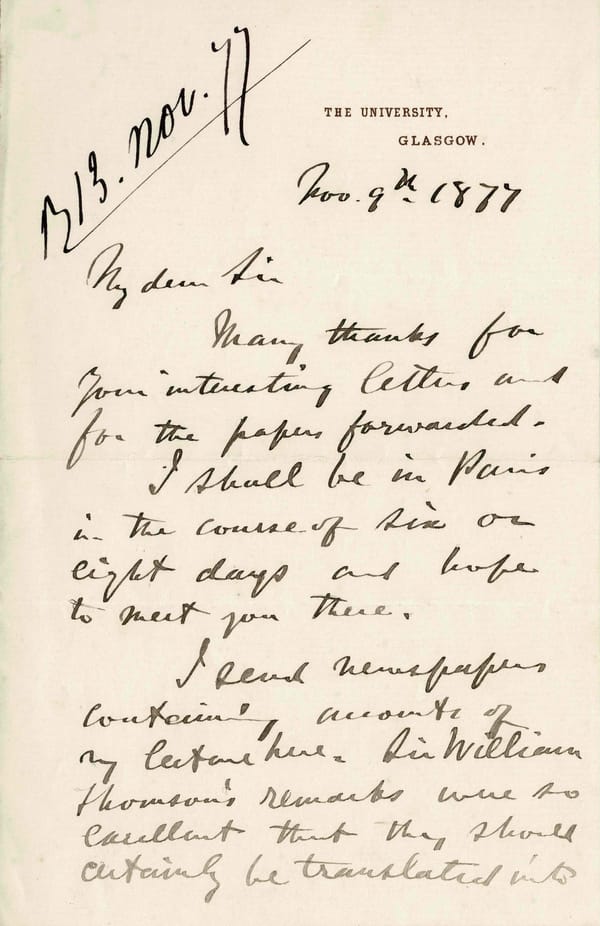A future giant of luxury at the Tsar’s court
In 1859, Louis Vuitton, then an unknown craftsman, shipped fine furniture to the Tsar’s aide-de-camp. This rare document marks the early steps of a man who would become a global luxury icon, and shows how French craftsmanship served diplomacy at the highest level.
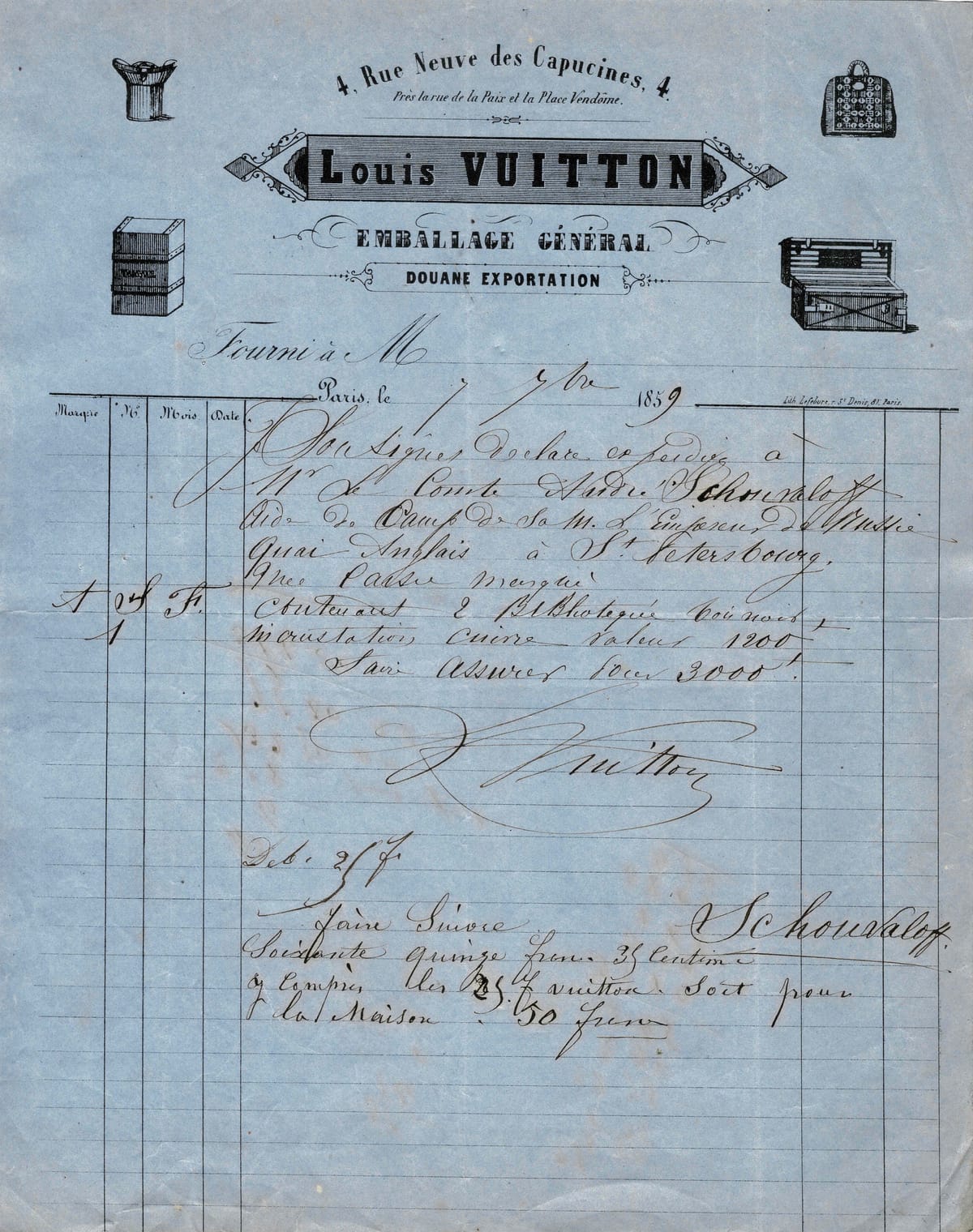
Imagine a Parisian craftsman, still unknown to the general public, sending his creations all the way to the banks of the Neva River, addressed to one of the Tsar’s closest advisors. It is September 1859, and Louis Vuitton, long before becoming a global symbol of luxury, dispatches a "masked" crate to Count André Schouvaloff, aide-de-camp to Alexander II and a prominent figure in Saint Petersburg.
In this brief manuscript, Vuitton declares the shipment of a crate containing two libraries, the whole insured for a notably high amount. This discretion and attention to detail reveal a craftsman who is both meticulous and attuned to the prestige of his clientele.
Paris, 7bre 1859. I, the undersigned, declare sending to Mr. Count André Schouvaloff, aide-de-camp to His Majesty the Emperor of Russia, English quay, St. Petersburg, a masked crate containing 2 black wood libraries – copper inlay, valued at 1200. Insure for 3000f. L. Vuitton.
This document also reflects a strategic moment: since the 1857 treaty, relations between Napoleon III’s France and Alexander II’s Russia had softened, paving the way for intense cultural and commercial exchange. The Russian elite was discovering French craftsmanship, and this order — intended for the Tsar himself — embodies that mutual fascination. Vuitton trunks would later become staples of the Imperial Court, right up to Nicholas II, the last Tsar of Russia.
It also reminds us that commerce - and luxury goods in particular - has long served as a discreet diplomatic tool, a parallel language between powers, where objects and trade can sometimes speak louder than official speeches.
This document was contributed by Julien Paganetti, a French expert in historical autographs and manuscripts based in Lyon, France. He is considered a leading authority in his field, both nationally and internationally. He has discovered and brought to light prestigious historical documents, and his clientele includes renowned collectors, institutions, and even former French presidents. Julien is truly passionate about his work and always eager to engage with fellow enthusiasts, particularly during international exhibitions.

